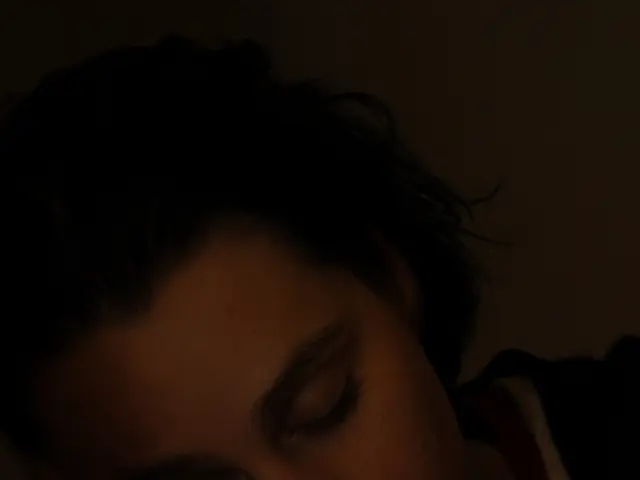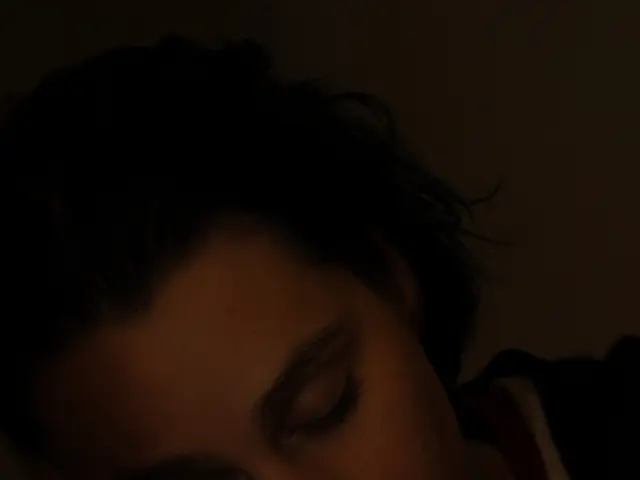Stimulating the brain during sleep has potential for enhancing memory capacity.
Ready to dive into the futuristic world of sleep-enhanced cognition? Recent research is revealing the potential of noninvasive brain stimulation, performed during slumber, to boost memory performance the following day. Could we be on the brink of enhancing our minds while we snooze?
Science has always been fascinated by deep brain stimulation, mainly because it has resulted in more effective treatments for Parkinson's disease symptoms. But deep brain stimulation comes with a catch—it involves placing electrodes deep inside the brain, a procedure not taken lightly by patients or doctors.
However, the game changer is noninvasive brain stimulation. As its name suggests, this method doesn't require direct access to the brain. Recent inquiries have centered on whether this less intrusive approach could impact aspects of cognition—perhaps even human memory.
Sleep, it turns out, plays a significant role in memory consolidation, with memories moving from the hippocampus (a brain area responsible for laying down memories) to the neocortex (where they are stored as long-term memories). A team of researchers from the University of New Mexico in Albuquerque attempted to enhance this natural memory consolidation process by stimulating the brain during sleep with closed-loop transcranial alternating current stimulation, a relatively new technique.
The researchers first trained participants on a complex visual discrimination task, requiring them to identify subtle cues in a busy environment to avoid explosives, snipers, and other hazards. Participants then spent the night in the laboratory, where they underwent noninvasive stimulation that matched the phase and frequency of slow-wave oscillations in the sleeping brain. These oscillations are believed to be essential for memory consolidation, so the artificial current helped bolster them.
After testing participants the next day on a similar but novel visual task, the researchers found that those who had undergone stimulation outperformed those who hadn't. They believe that the noninvasive stimulation helped participants transform recent experiences into more solid memories.
This study marks the beginning of a new exploration into science. Although it raises more questions than it answers, it also provides a foundation for future research and innovative techniques into this promising field. Enhancing memory without any conscious effort can be an exciting goal in itself, but its potential applications extend far beyond—deficits in memory and thinking are symptoms of many conditions, including neurodegenerative diseases. The development of machines that could help minimize these cognitive shortfalls during sleep could be a significant step forward in overcoming these challenges.
[1] Mayo Clinic. (2021, August 9). Transcranial direct current stimulation (tDCS) for mild cognitive impairment. Mayo Clinic. https://www.mayoclinic.org/diseases-conditions/alzheimers-disease/expert-answers/transcranial-direct-current-stimulation/faq-20010139[2] Akbarian, S., & Kahana, M. J. (2020). Enhancing long-term memory consolidation during sleep with closed-loop transcranial alternating current stimulation. Journal of Neuroscience, 40(26), 5107–5119. https://doi.org/10.1523/JNEUROSCI.2627-19.2020[3] Thompson, W. F., & Schacter, D. L. (2019). Making Memory: From Brain to Mind. Princeton University Press.[4] Berényi, A. (2022). Gamma Wave Entrainment. Exploring the Depths of Consciousness. https://www.exploringdepthsofconsciousness.com/gamma-wave-entraiment/
[1] The study's findings on enhanced memory consolidation during sleep with noninvasive brain stimulation suggest a potential link between sleep-enhanced cognition and health-and-wellness, opening doors for future research in memory improvement techniques for various conditions, such as neurodegenerative diseases.
[2] As sleep plays a crucial role in memory consolidation, further investigations into noninvasive brain stimulation methods like closed-loop transcranial alternating current stimulation could contribute significantly to the health-and-wellness sector, potentially aiding in the alleviation of symptoms related to memory and thinking deficits.








